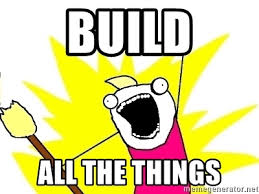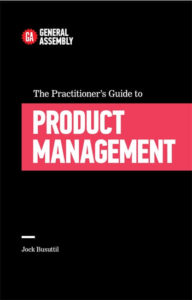
70: You need a delivery manager on your team
I’m writing about 100 things I’ve learned the hard way about product management. You can catch up on the previous entries if you like.
In the UK government digital teams, you don’t see project managers or even Scrum masters. Why? Because they have delivery managers instead. In this article, I’m going to convince you why you need delivery managers on your teams.
In this article #
Not a project manager
Imagine a project manager: their role is to keep the project team on track, on time and on budget, to enforce the process, and to communicate progress and seek help from above when the team is blocked.
Now imagine them evolving from a role centred on controls, processes and documentation to one of trust, flexibility and coaching. These are the ones who now support and encourage the team to work in the way it needs to, rather than constraining it to an unbending process.
Not a Scrum master either
In UK Government, digital teams typically use agile and lean methodologies, but they don’t typically have Scrum masters. This is because they don’t necessarily always practise Scrum.
Instead, they have a delivery manager. Just as a product manager may be able to fulfil the role of Scrum product owner, but that is only one of many tools at their disposal, a delivery manager is familiar with different methodologies, tools and techniques and can pick and choose what is going to be most appropriate to help the team achieve their goal as efficiently as possible.
The delivery manager’s role is essentially to coach the team to help them define and adapt their own process to their own needs, the problem they’re trying to solve, the characteristics of that particular problem, the environment they’re in, even the skill sets in the team.
In practice, this could be anything from sitting down with the team in a retrospective and helping them figure out what they can collectively be doing better, through to literally shifting desks around so that the team can sit closer together, through to making sure there’s going to be a legal expert available in a couple of weeks’ time when the team needs her.
Or it might be that the delivery manager goes and has a diplomatic chat with someone elsewhere in the organisation who’s maybe being a bit obstructive to the team, or not providing the information the team needs.
In many respects there’s a great deal of overlap between what a delivery manager and a product manager does for their team. One subtle difference is possibly that the delivery manager is more focused on the needs of the team (but without ignoring the needs of users and the organisation), and the product manager is more focused on the needs of the users (without ignoring the needs of the team and the organisation).
What is a delivery manager, then?
Mark Stanley is currently a deputy director for Digital Probation over at the UK’s Ministry of Justice (MOJ). He’s a lovely and talented gentleman whom I had the pleasure of working with when he was head of delivery for the MOJ’s digital team. He was also one of the first delivery managers when the UK’s Government Digital Service (GDS) was formed.
His article from 2012 is still a great description of what it means to be a good delivery manager.

According to the various job descriptions dotted around GOV.UK (see Further reading), a good delivery manager will:
- build and maintain motivated teams, making sure there is an iterative plan to work towards
- protect the team and make sure the team collaborates, communicates and focuses on what is most important to the delivery of products and services
- coach and mentor team members and others to apply the most appropriate agile and lean tools and techniques for their environment
- help the team become better at autonomously organising their own work
- encourage and facilitate continuous improvement of the delivery team
- proactively manage dependencies, identify obstacles (or ‘blockers’) and help the team to overcome them, and get the best value despite constraints
- potentially manage risks, budgets and people
- set up the agile environment the team needs to build and iterate a user-centred service
- make sure accessibility is factored into each feature or activity the team’s working on1
A healthy tension

There’s also a healthy tension between the product manager and delivery manager. While a product manager may be tempted to solve all the user problems at once and cram more and more features into a product, the delivery manager is there to encourage them to trim the list of twenty things down to a more realistic three or four that can be done in the time available.
Final thoughts
The pairing of product manager and delivery manager forms a solid partnership that will help an empowered, autonomous and multi-disciplinary team to deliver the right product, in the right way, as quickly and efficiently as possible.
That’s why you need a good delivery manager on your team. Convinced?
Further reading
- Explaining the role of a Delivery Manager, Emily Webber, retrieved 24 May 2020
- A day in the life of a delivery manager, Mark Stanley, retrieved 24 May 2020
- Guidance: Delivery Manager, GOV.UK, retrieved 24 May 2020
- The team: What each role does in a service team, GOV.UK, retrieved 24 May 2020
- Delivery manager job description template, GOV.UK, retrieved 24 May 2020
Notes #
- Digital services in the UK need to be inclusive for all people regardless of impairments or digital literacy. To reinforce that, new regulations mean that all public sector websites in the UK must be accessible by 23 September 2020, and apps by 23 June 2021. ↩


Leave a Reply